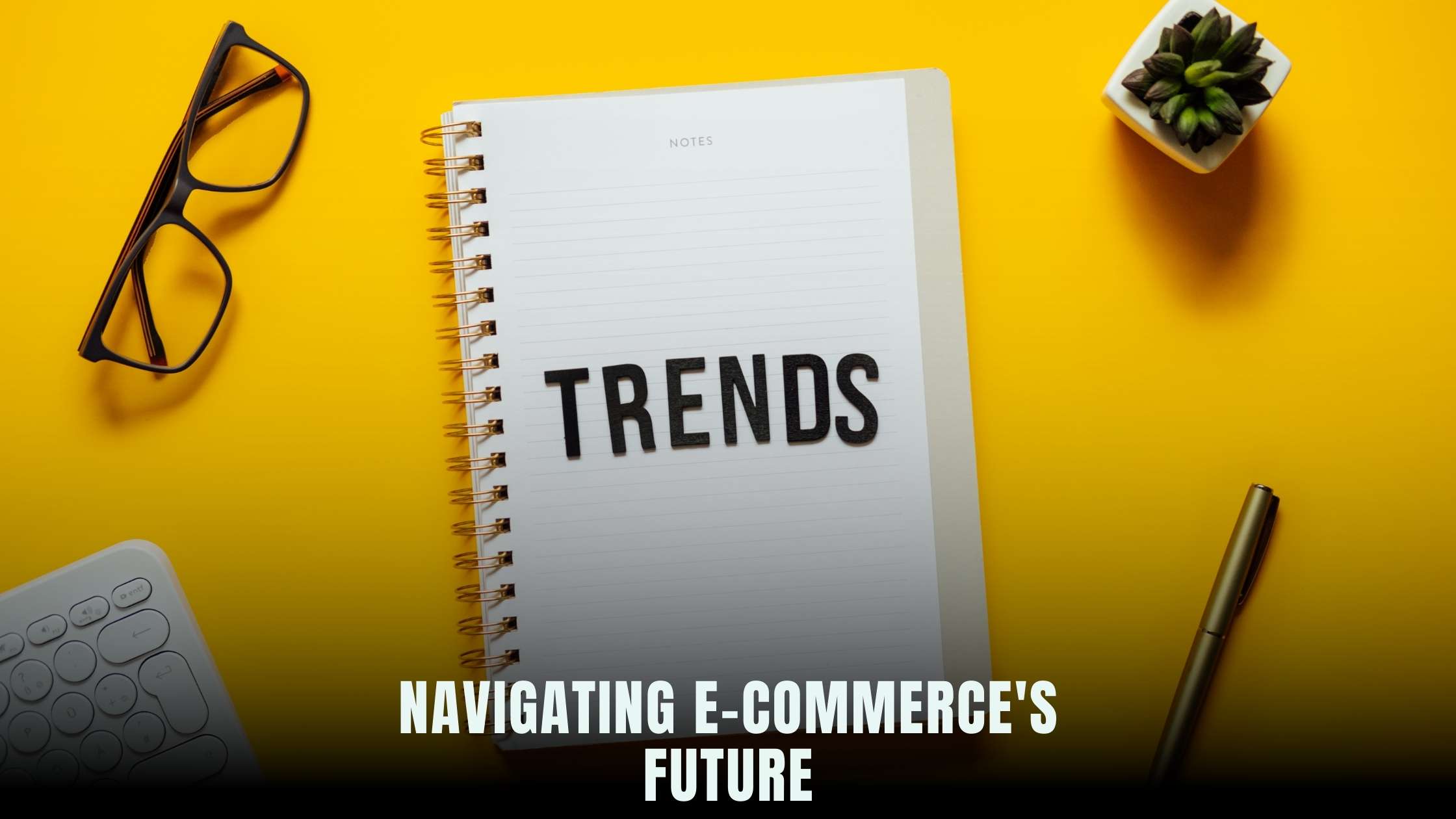Forecasting the Future: E-commerce Trends for the Next Five Years


Forecasting the Future: E-commerce Trends for the Next Five Years
In the rapidly evolving landscape of e-commerce, staying ahead of emerging trends is essential for businesses to thrive in a competitive market. As technology continues to reshape consumer behavior and market dynamics, forecasting the future of e-commerce becomes paramount for strategic planning and sustainable growth. In this comprehensive guide, we explore the anticipated trends that will shape the e-commerce industry over the next five years and provide actionable insights for businesses to adapt and succeed in this dynamic environment.
Anticipated E-commerce Trends
1. Hyper-Personalization
With advancements in data analytics and machine learning, e-commerce retailers are poised to deliver hyper-personalized shopping experiences tailored to individual preferences and behaviors. By leveraging customer data and predictive analytics, businesses can anticipate consumer needs, recommend personalized products, and enhance customer engagement throughout the purchase journey.
2. Augmented Reality (AR) Shopping
The integration of augmented reality technology into e-commerce platforms is revolutionizing the way consumers shop online. AR-enabled shopping experiences allow customers to visualize products in their real-world environment before making a purchase, providing a more immersive and interactive shopping experience. As AR technology becomes more accessible and sophisticated, e-commerce retailers can expect to see increased adoption and demand for AR-powered shopping solutions.
3. Voice Commerce
The rise of voice-activated smart devices such as Amazon Echo and Google Home is driving the adoption of voice commerce in e-commerce. Voice-activated shopping assistants enable customers to make purchases using natural language commands, simplifying the shopping process and enhancing convenience. As voice recognition technology continues to improve, e-commerce retailers need to optimize their platforms for voice search and voice-enabled transactions to capitalize on this emerging trend.
4. Sustainable and Ethical Consumption
Consumers are becoming increasingly conscious of environmental and social issues, leading to a growing demand for sustainable and ethically sourced products. E-commerce retailers that prioritize sustainability and ethical practices in their supply chain and product offerings are likely to gain a competitive edge and build stronger brand loyalty among eco-conscious consumers. As sustainability becomes a key driver of purchasing decisions, businesses must align their values with consumer expectations to stay relevant in the market.
5. Social Commerce
The integration of social media platforms with e-commerce functionalities is blurring the lines between social networking and online shopping. Social commerce enables businesses to leverage social media channels as sales channels, allowing customers to discover, browse, and purchase products directly within their social feeds. With the rise of influencer marketing and shoppable content, social commerce presents lucrative opportunities for e-commerce retailers to reach and engage with their target audience effectively.
Relevant SaaS Products for E-commerce Success
Here are some top SaaS products that can help businesses capitalize on the anticipated trends in e-commerce over the next five years:
1. Shopify
Shopify – A comprehensive e-commerce platform that empowers businesses to build, manage, and scale online stores with ease. From customizable storefronts to integrated payment processing, Shopify offers a suite of tools to streamline the e-commerce experience for merchants and customers alike.
2. WooCommerce
WooCommerce – A customizable e-commerce plugin for WordPress that enables businesses to create fully functional online stores. With features for inventory management, order processing, and customizable themes, WooCommerce provides a flexible and scalable solution for e-commerce retailers of all sizes.
3. BigCommerce
BigCommerce – An all-in-one e-commerce platform that offers advanced features for selling online. With built-in SEO tools, multi-channel selling capabilities, and customizable storefronts, BigCommerce helps businesses drive growth and maximize sales opportunities in the competitive e-commerce landscape.
4. Magento
Magento – An open-source e-commerce platform that provides unparalleled flexibility and scalability for businesses of all sizes. With a robust set of features for customization, integration, and performance optimization, Magento empowers merchants to create unique and engaging online shopping experiences for their customers.
5. Salesforce Commerce Cloud
Salesforce Commerce Cloud – A cloud-based e-commerce platform that enables businesses to deliver personalized shopping experiences across all digital channels. With AI-powered recommendations, predictive analytics, and omnichannel capabilities, Salesforce Commerce Cloud helps businesses drive engagement, loyalty, and revenue growth in the e-commerce space.
Leveraging Subscribed.FYI Deals for Enhanced E-commerce Solutions
As businesses navigate the evolving landscape of e-commerce and seek to leverage cutting-edge SaaS products for success, Subscribed.FYI offers exclusive deals and discounts on premium software solutions mentioned in this article. By accessing Subscribed.FYI Deals, businesses can unlock special offers and savings on top-notch e-commerce platforms and SaaS products, empowering them to enhance their online presence, optimize operations, and drive business growth.
Relevant Product Links:
- Shopify
- WooCommerce
- BigCommerce
- Magento
- Salesforce Commerce Cloud
- Subscribed.FYI
- Subscribed.FYI Deals








